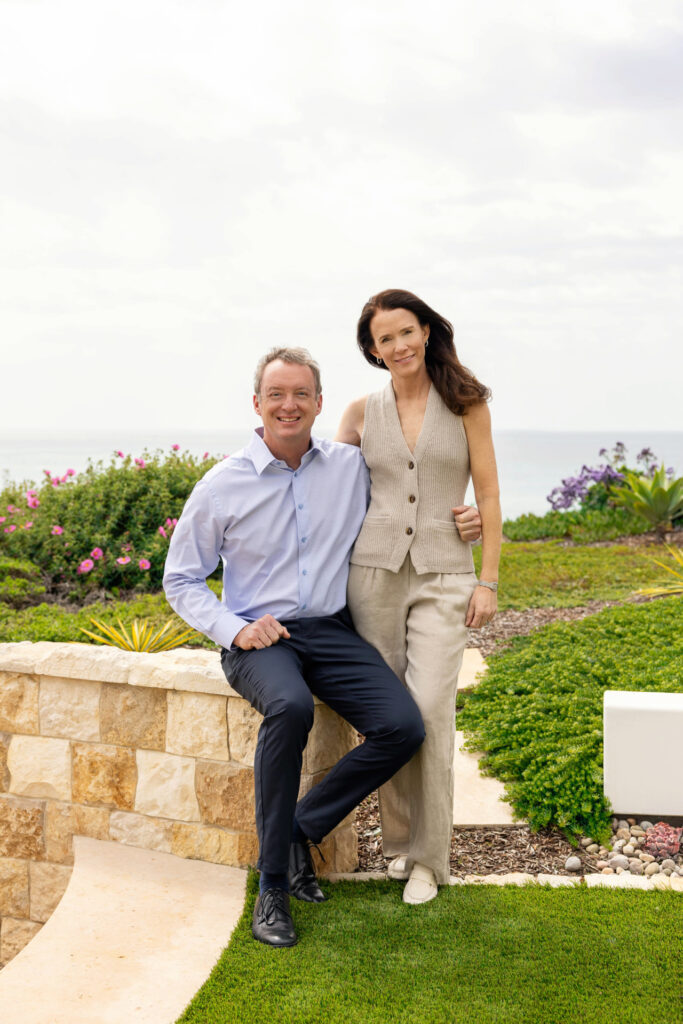John and Sally Hood’s philanthropic efforts benefit Texas A&M AgriLife Research
Hood Family Foundation provides $5 million to support formation of Center for Greenhouse Gas Management in Agriculture and Forestry
When it comes to philanthropy, John Hood Ph.D., and his wife Sally are always searching for the next impactful prospect. From supporting the work done by researchers within Texas A&M AgriLife Research to providing opportunities for first-generation students to attend college, the Hoods’ generosity seems to know no bounds.
The most recent opportunity presented to John ’90 and Sally ’92 by the Texas A&M College of Agriculture and Life Sciences was one the couple felt strongly about and could not pass up.

The Hoods gave a $5 million endowment to aide in the formation of the Center for Greenhouse Gas Management in Agriculture and Forestry, which was established in February 2023 by AgriLife Research and Texas A&M University.
“Support from the Hood Foundation is an important step in what will become a globally impactful resource for managing greenhouse gas,” said G. Cliff Lamb, Ph.D., director of AgriLife Research. “The foundational knowledge we pioneer in this emerging space will advance our research mission to strengthen communities, protect natural resources and support economies.”
The center, which will be led by Nithya Rajan, Ph.D., brings together expertise across The Texas A&M University System to advance the abilities of agriculture and forestry systems to meet a new paradigm of safe, affordable food and fiber production that also strives toward a minimal carbon footprint, with a goal of net-zero emissions.
The center will focus on strengthening ongoing research in greenhouse gas emissions and carbon sequestration.
“It is an opportunity to effectively do something about climate change and do it in an incredibly pragmatic way that will actually get adopted,” John said of the center. “We were really impressed with their work and felt it is a chance to change the world for our kids and grandkids.
“Finding a way to make a difference is something Sally and I have talked about for a long time. This is a tangible way to use technology and biotechnology to change the curve.”
Setting their course
John grew up in the small East Texas town of Gladewater, while Sally grew up in the suburbs of Houston. The two met while attending Texas A&M.
John earned his undergraduate and graduate degrees in biochemistry and medical physiology, respectively. Sally, meanwhile, earned her bachelor’s degree in microbiology in 1992. While John was in graduate school, Sally went to work in the process control instrumentation industry.
When John finished graduate school, they moved to San Diego where he was a Research Fellow for the Scripps Research Institute for four years.
In San Diego, John founded and led several successful biotechnology companies, and he is currently the founder, CEO and executive chairman of Endeavor Biomedicines, a company funded in 2021 to develop novel therapies for oncology and idiopathic pulmonary fibrosis.
Prior to that, John was the founder and CEO of Impact Biomedicines, now owned and operated by Bristol-Myers Squibb, the developer of fedratinib, which has subsequently been approved worldwide for the treatment of myelofibrosis. He began his career as director of research at TargeGen in 2001, where he co-discovered fedratinib and led a team identifying small molecule therapeutics for the treatment of cancer and eye disease. John is an inventor on 100-plus patents and the author of 50-plus scientific articles.
“We have done really well in terms of a couple of businesses, and we wanted to give back,” John said. “We give back in a number of different ways and that includes donations to Texas A&M.”
A history of giving
The Hoods are no strangers to giving to groups within Texas A&M AgriLife. Previous recipients of their endowments have included the Center for Phage Technology, which is the lab where John worked during graduate school, and research focusing on the use of artificial intelligence for producing algae as a reliable, economic source for biofuel.
Although the Hoods have donated to several research projects at Texas A&M as well as other universities, the supportive endeavor about which they are most passionate is enriching the lives of first-generation students, particularly those from John’s hometown of Gladewater.
The Hoods established a scholarship through Texas A&M’s Regents’ Scholars Program. The program supports first-generation undergraduates whose total family income is less than $40,000 per year and a $100,000 gift permanently endows an award to provide one student an annual stipend for four years.
“John is a first-generation student, and we both completed college with Pell grants and work study,” Sally said. “We are both very passionate about giving other people that same opportunity to finish school with no debt. We feel we can make a difference, and it is meaningful to us and to the people we are impacting.”
The Hoods’ gifts to Texas A&M are managed by the Texas A&M Foundation, the primary academic fundraising institution for Texas A&M whose mission is to build a brighter future for Texas A&M University by raising and investing major gift endowments.
Both John and Sally are quick to point out that their relationship with Scott Jarvis ’00, director of development within the College of Agriculture and Life Sciences, was a major factor in their support of the College.
“Scott finds what we are interested in, and he presents the opportunities,” Sally said. “We deal with a lot of folks at a lot of institutions, and there is no one like Scott Jarvis.”





